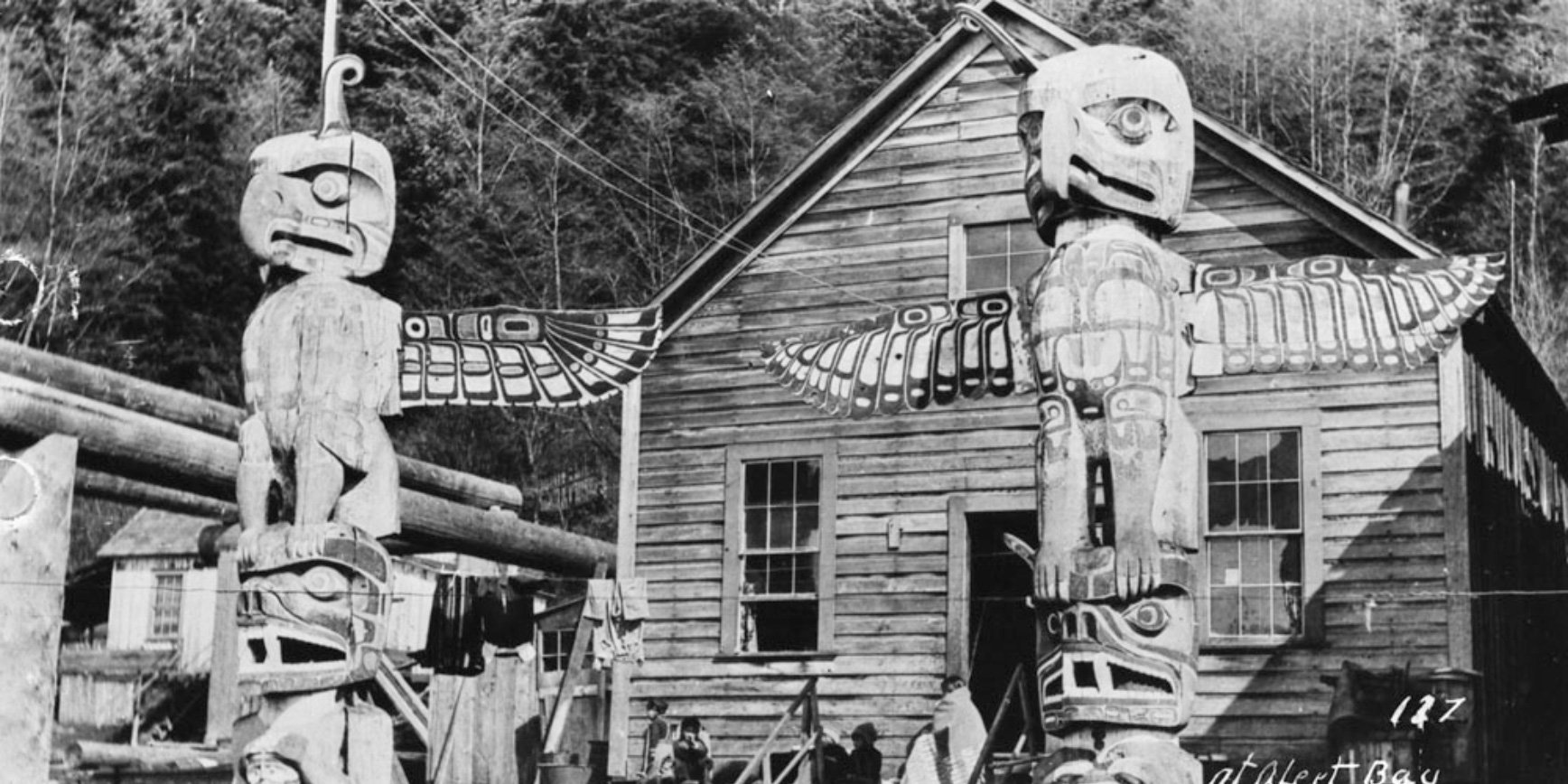Canada’s Complicated History with First Nation Totem Poles
Canada has a complicated history with the totem pole. Totems have been misunderstood, coveted, stolen, quashed, copied, and celebrated. The first...

 Reprinted with permission from: McInnes Cooper Lawyers | Avocats
Reprinted with permission from: McInnes Cooper Lawyers | AvocatsRecent developments in Ontario and Yukon are an important reminder of the practical implications of the Crown’s legal Duty to Consult with First Nations on exploration rights granted to the mining industry under provincial laws. Resource and energy sector companies operating in Canada should learn a lesson from the Ontario and Yukon experience: blind reliance on Crown decisions or actions as an assurance that the Crown has met its legal Duty to Consult can lead to consequences ranging from minor delays, to project cancellation – with significant associated costs.
Resource and energy sector companies can pro-actively manage the risk related to the Duty to Consult by:
BACKGROUND
Duty to Consult 101: The Supreme Court of Canada has confirmed, through a series of decisions since 1990, that both the Federal and the Provincial Crowns have a duty to consult Aboriginal people where a Crown decision or action may adversely affect Aboriginal rights and title. This Duty to Consult does not need to be expressed in any particular legislation or regulation for it to be of full force and effect; rather, it is an overarching constitutional obligation on the Crown that applies to any decision or activity that may adversely affect claims of Aboriginal rights or title. Examples of Crown decisions or actions that may trigger the Duty to Consult include the issuance of license, permits or approvals, and grants of rights to Crown resources and land. Where a court finds the Crown failed to meet its Duty to Consult, it will make an order to remedy that failure. The remedies available to the court are varied and potentially far-reaching, and may include:
“Free” or “Open” Entry Claims Systems: Many Canadian Provinces and Territories – including New Brunswick and Newfoundland and Labrador – manage their mineral resources through “free” (or “open”) mineral claim systems. Under this system, prospectors can acquire mineral claims by entering on Crown lands, staking, and then recording, claims. The mining recorder for each Province or Territory typically has no discretion to refuse a claim that complies with the requirements of the relevant mining legislation and regulations.
Under a “free” entry system, once a claim is recorded, the claim holder must perform certain works as outlined in the applicable regulations to maintain the claim. Apart from maintaining a registry of claims, the Crown does not become actively involved in the development process until it receives an application to perform certain exploratory work. The exploration activities regulated by subsequent permitting differ by jurisdiction; in certain jurisdictions, a proponent could theoretically proceed with certain exploration activities - and make certain financial commitments and expenditures accordingly – in strict compliance with the mining legislation and regulations, without the Crown first putting its mind to claims of Aboriginal rights or title.
THE YUKON AND ONTARIO EXPERIENCES
The Yukon Court of Appeal’s Incursion on Free Entry Mining: The Yukon Quartz Mining Actestablishes a free entry system for mineral claims in the Yukon Territory. Under this Act, holders of mineral claims are free to perform “Class 1” exploration, including clearing of land, construction of lines, corridors and temporary trails, without providing notice to the Crown or its officials, or obtaining permits or permission. Mineral claim holders could thus conduct these activities without notice to, or consultation, with First Nations whose lands are actually – or potentially – affected.
In 2012, the Ross River Dena First Nations Council challenged the constitutionality of the Quartz Mining Acton the basis that the Crown must consult with the First Nation where it proposes to record a mineral claim within a territory subject to Aboriginal rights and title claims. In December 2012, the Yukon Court of Appeal agreed that the Duty to Consult applies to all claim staking and exploration processes under theQuartz Mining Act that may impact Aboriginal rights and title. The Court of Appeal gave the Territorial government one year to amend the Quartz Mining Act, or the way in which it implements it, to provide for consultation with and, where appropriate, accommodation of, First Nations at the early stages of mineral claim staking and exploration. Notably, the Court of Appeal did not make any comment on the impact of its decision on mineral claims already staked.
Ontario’s Implementation of its Duty to Consult under the Mining Act: The Yukon decision comes on the heels of amendments to the Ontario Mining Act. These amendments may have been influenced by litigation involving the Wahgoshig First Nation.
In Wahgoshig First Nation v. Ontario, Solid Gold Resources Corp. obtained a mining claim under the OntarioMining Act (also a free entry system) and conducted exploratory drilling on the Wahgoshig’s traditional territory. Solid Gold proceeded with its exploration plans despite suggestions by provincial regulators that it undertake certain consultation activities with the Wahgoshig. The Wahgoshig objected to Solid Gold’s activities on the basis that the Ontario Crown had failed to fulfill its Duty to Consult. The Wahgoshig successfully obtained an injunction against Solid Gold from the Ontario Superior Court. The Court’s order stopped Solid Gold from carrying out exploration for 120 days, and required Solid Gold and the Province to enter into “meaningful consultation and accommodation” with the Wahgoshig. Solid Gold is appealing this decision to the Ontario Court of Appeal, but that Court has not yet heard or decided the appeal.
In the meantime, the Provincial Crown was not idle. Effective November 1, 2012, the Ontario government amended its Mining Act to clearly delegate Aboriginal consultation activities to mining proponents before a claim is registered. For example, before a proponent can undertake early exploration activities, it must submit an exploration plan to the Crown, notify Aboriginal communities that will potentially be affected, and provide those communities with an opportunity to give feedback before the proponent can carry out the proposed activities. Aboriginal communities can also apply to have sites of Aboriginal significance withdrawn from areas where mining claims can be staked. The rights associated with Ontario’s “free entry” system are now expressly subject to claim holders’ ability to ensure that effective consultation with potentially affected aboriginal communities has taken place.
LESSONS LEARNED: THE BIG PICTURE FOR CANADIAN RESOURCES & ENERGY SECTORS
Some regulators may consider the recent changes in Ontario’s and Yukon’s mining sector as a call to action. The changes highlight an important lesson that applies to all Canadian resource and energy sectors subject to the decisions and actions of government regulators because they all typically carry on activities with the potential to affect Aboriginal rights and title.
Project proponents in resource and energy sectors cannot rely blindly on regulatory frameworks to provide them with certainty regarding their rights to mineral access, exploration and extraction: if the Crown has not substantively met its Duty to Consult, the regulatory framework is of little comfort.
Where the Crown appears to be managing its Duty to Consult through delegation of certain procedural aspects to proponents, these directions are often fairly new and fluid in nature. Whether explicitly required by regulation or managed on a case-by-case basis by regulators, such regulatory requirements can amount to important costs and delays for proponents. In any case, project proponents should thoroughly examine the effectiveness of such delegation because the Crown’s failure to fulfill its Duty to Consult can result in even more significant roadblocks.
Resource and energy sector companies can pro-actively manage the risk with regards to the Duty to Consult by:
<em>McInnes Cooper has prepared this document for information only; it is not intended to be legal advice. You should consult McInnes Cooper about your unique circumstances before acting on this information. McInnes Cooper excludes all liability for anything contained in this document and any use you make of it.</em>
Click the image to subscribe to our monthly newsletter.

Canada has a complicated history with the totem pole. Totems have been misunderstood, coveted, stolen, quashed, copied, and celebrated. The first...

June is National Aboriginal History Month, and this year, the day after National Aboriginal History Month ends activities for Canada 150 begin....

Improving the Participation of Aboriginal Peoples in Canada’s Workforce by the Canadian Chamber of Commerce presents some successful initiatives to...